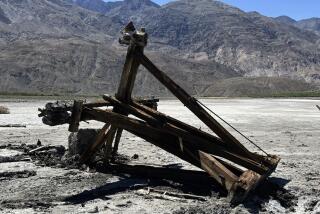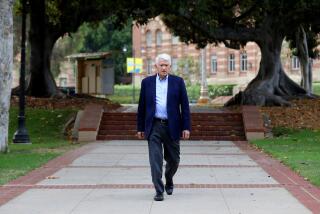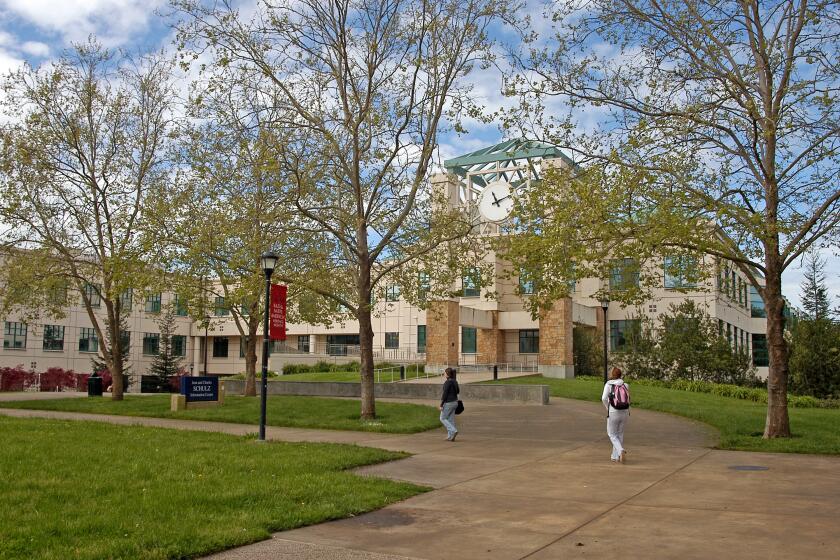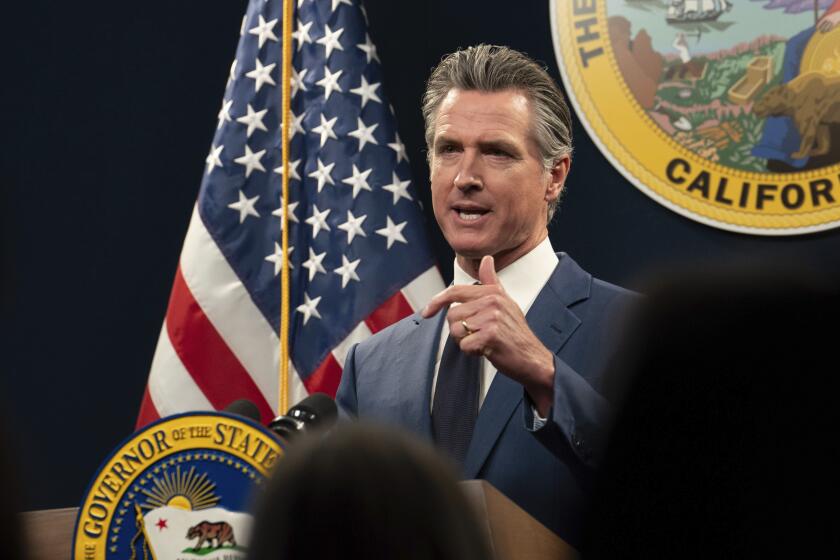Reaction to Advisors’ Resignations Ranges From Dismay to Relief
The head of pulmonary medicine at UC Irvine Medical Center said it was scary.
A Riverside County supervisor said it was bold.
The chief economist to a Los Angeles business development group said it was just one more grenade attack in the political battlefield.
Reaction ran across a wide spectrum Friday to the resignations of nine of 11 technical advisors to the South Coast Air Quality Management District--the Southland’s smog supervisors.
Some observers said the protest was an effective way to draw public attention to what they consider Southern California’s waffling clean air battle. Others said, in so many words, good riddance!
The advisors resigned Thursday, complaining that the smog agency’s newest clean air plan would not ensure healthful air because it was based on unreliable predictions about the severity of smog over the next 15 years.
Moreover, the advisors complained that the AQMD has gone soft in its smog war, bowing to political and business pressures to relax air pollution emission standards, and that their input was being dismissed.
“To me, it’s pretty scary. That’s a pretty powerful statement,” said Dr. Archie Wilson, chief of pulmonary medicine at the UCI Medical Center. Usually such scientific advisors “will take a certain amount of disappointment. It must have been pretty serious for all of them to resign.”
But an Orange County business leader cautioned against the view that the air quality agency has been weakened.
“Because they’ve made some decisions that favor business instead of environmentalists, I don’t think it’s cause for people to get worried,” said Ed Laird, president of Coatings Resource Corp. in Huntington Beach and chairman of the Small Business Coalition of Southern California.
“I think it’s disappointing that they all left en masse that way,” Laird said. “I think it was very immature for them to do it that way.”
Ron Lamb, the head of government relations for the Los Angeles Area Chamber of Commerce, said he was sorry the scientists quit.
“But . . . quite frankly,” he said, “I think the L.A. Chamber has worked very hard to achieve balance in the regulatory community and the environmental community. And I can’t imagine the scientists have resigned because they oppose balance. There must be another reason.”
Another observer applauded the panel’s work and said the advisors’ resignations should send up giant warning flags. Kay Ceniceros, head of the Riverside County Board of Supervisors, said the advisors bring “an extraordinarily valid point of view” to the AQMD’s board.
*
“We need those scientists to be our conscience,” Ceniceros said.
Environmentalist David Perlman of Laguna Beach, vice chairman of the Sierra Club’s Sierra Sage group, praised the advisors for “standing up for the environment.” He criticized plans to reduce the number of AQMD monitoring stations in Orange County.
While the county once had six stations, two have closed and two more are to follow--in Costa Mesa and La Habra. By 2002, only two will remain, in Anaheim and Lake Forest.
Michael T. Kleinman, professor of community and environmental medicine at UC Irvine, said that he is not unduly worried by the recent direction of the agency and that two stations should suffice. Still, the resignations concern him.
“I felt the advisors at AQMD were very good and that they may have additional causes for concern that have not yet been made public,” he said. “I certainly would like to hear from them more specifically why they felt it necessary to do this at this time.”
Others suggested that the advisors would not necessarily be missed.
Most of the advisors are from academia and “oftentimes do not understand the business side of the issues,” said Orange County Supervisor Jim Silva, an AQMD board member. In choosing replacements, he said, “Perhaps we should be getting people from different walks of life, not just from the academic world.”
Jack Kyser, chief economist at the Economic Development Corp. of Los Angeles County, said, “A lot of these people were very dedicated to really cleaning up the air, at all costs. Yes, you want to clean up the air as quickly and effectively as possible, but you have to be concerned about the impact on the economy and what it means to jobs.”
At the Orange County Business Council, Julie Puentes, executive vice president of public affairs, said it is “always unfortunate when people drop out of the process and choose not to continue participating in it.” Nonetheless, she said, the council believes that recent air quality plans “have tried to achieve a better balance between reasonable regulation and economic impacts.”
Gov. Pete Wilson said his administration will look into the scientists’ criticisms of the AQMD’s policies.
“I don’t have a very clear picture of what the substantive objections are, but we will be looking at it because obviously we intend to make sure that the [Clean Air] Act is fully implemented,” Wilson said.
As a U.S. senator, Wilson was one of the main supporters of the act, which requires the states to meet limits and deadlines for air pollution. He has been criticized, though, by environmentalists for weakening state policies.
Art Pick, president of the Greater Riverside Chambers of Commerce, said the resignations “weren’t a good idea. It’s better to work inside the organization than from the outside. . . . They’ve abandoned their intellectual ground, and that’s a mistake, always.”
Former state Sen. Robert Presley of Riverside--who championed tougher smog standards in the 1980s--also was upset over the resignations. “Their timing is sort of bad,” he said. “We’re coming out of the recession, to where the board would probably feel more comfortable making a more hard-line stance against air pollution.”
Times staff writers Deborah Schoch and Dave Lesher contributed to this story.
More to Read
Start your day right
Sign up for Essential California for news, features and recommendations from the L.A. Times and beyond in your inbox six days a week.
You may occasionally receive promotional content from the Los Angeles Times.






